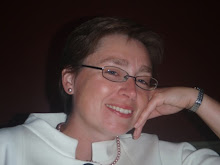You know what science is. You know how people go about “doing science”. We all do. We picture the chemist in his lab with his test tubes, the physicist thinking about hard equations in front of his computer, the astronomer with his telescope, the biologist with his microscope. He’s featured extensively in the media, in everything from dishwashing detergent adverts to CSI. We think we know all we need to know about him, the scientist.
But we need to step back and reconsider what we think we know. For the great majority of us, the scientist is unquestionably a “him” – and a him with white skin, the ubiquitous white coat, and probably mad hair too (denoting an Einstein-like genius and disregard for the mundane everyday). Social scientists have been administering a “Draw-a-Scientist” test to elementary and middle school students since the early 1980s. In the first wave of experiments, all elementary school students proved extremely likely to draw exactly the typical scientist stereotype. More recently, middle school students, who are being educated in a more critical reading of the way the media functions, are dividing along gender lines: the boys draw a man, while the girls are more likely (though by no means 100%) to draw a woman. Adult stereotyping of scientists is just as prevalent, though the general attitude towards scientists as a group seems to be becoming more positive as time goes by. Ask yourself this: if you sat down to draw a scientist right now, what would your picture portray?
This stereotype persists even though the reality and portrayal of science changing, albeit slowly. More films and TV shows are including women in professional and scientific roles (sometimes even without the white coat), though recent research has revealed that female characters are still very likely to be sexualized or used in a storyline in a way that emphasizes their romantic desires or physical attributes rather then intelligence, education, or experience. Ms Frizzle, of The Magic School Bus, is a schoolteacher who glories in the possibilities of science and whose racially diverse, gender-balanced class gets to experience the wonders of scientific discovery first hand; yet she retains the stereotypical characteristics of a mad scientist who functions outside the everyday world. If Ms. Frizzle is a scientist, she is not one of us.
(References: Jane Butler Kahle in Gender Issues in Science Education (Curtin University of Technology, 1987).
J. Steinke, M. K. Lapinski, N. Crocker, A. Zietsman-Thomas, Y. Williams, S. H. Evergreen, and S. Kuchibhotla, Assessing Media Influences on Middle School Aged Children's Perceptions of Women in Science Using the Draw-A-Scientist Test (DAST) Science Communication, September 1, 2007; 29(1): 35 - 64.
Losh, Susan. American Stereotypes about Scientists: Gender and Time Effects Paper presented at the annual meeting of the American Sociological Association, Montreal Convention Center, Montreal, Quebec, Canada, Aug 10, 2006
Stacey L. Smith, unpublished research on gender in children’s TV and films for the Geena Davis Institute on Gender in Media. http://www.thegeenadavisinstitute.org/research.php )
Subscribe to:
Post Comments (Atom)

No comments:
Post a Comment